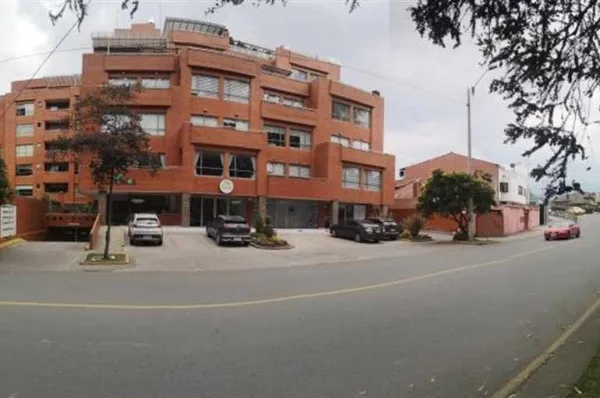Economics and consciousness
By Carol E. Leutner
Over the past few years, CuencaHighLife has published several articles on consciousness. They range from a definition of consciousness as a process of self-realization or awareness, to consciousness being fundamental to the perception of physical reality. Most recently, two authors proposed that reaching higher states of consciousness promotes mental and  physical health.
physical health.
Consciousness is a hot topic. While scientists have unlocked many of nature´s secrets, consciousness remains a stubborn enigma. Academic journals are replete with hypotheses. Is it a biological phenomenon or simply memory? Can it be replicated in artificial intelligence? Does consciousness survive death and thus take on a spiritual quality?
At the same time that science struggles to unravel this mystery, the public at large is also faced with consciousness-related dilemmas. Since the onslaught of the COVID-19 pandemic, basic assumptions about how the world operates have eroded. Routines of daily life have been interrupted with worrying concerns — the future of democracy and global institutions in place since World War II, the looming threat of climate change, and the rapacious pace of artificial intelligence that could replace not only human labor but thoughts.
The challenges are existential. The questions they raise, are philosophical. Yet political and corporate leaders offer only two choices: either maintain the status quo, which seems futile, or push for change, even without a clear path forward. When the dialogue becomes so toxic and the media´s daily explanation of events so polarized, it is time to step back and reflect.
 How did society arrive at this point and how are these events connected? Thinking more deeply about human beings’ relationship with each other, particularly their economic ones, the natural world and technology is in itself a consciousness-raising exercise. At first glance, consciousness and economics may appear disparate. They are not. The climate emergency provides an opportunity to become more conscious of how past and present economic relationships are affecting the future of the planet.
How did society arrive at this point and how are these events connected? Thinking more deeply about human beings’ relationship with each other, particularly their economic ones, the natural world and technology is in itself a consciousness-raising exercise. At first glance, consciousness and economics may appear disparate. They are not. The climate emergency provides an opportunity to become more conscious of how past and present economic relationships are affecting the future of the planet.
Consider the following: during the U. N. meeting of the Intergovernmental Panel on Climate Change in Egypt last year, developed countries committed 230 million U.S. dollars to build a fund that will support vulnerable countries damaged by or adversely affected by climate change. It is unlikely, however, given the fate of previous commitments, that the pledges will be fully met. At the same time, these vulnerable countries are repaying staggering amounts of legacy debt at high interest rates. Interest-drained budgets leave little room for subsidies to poor communities or support for health and education, much less new climate-related initiatives.
Strapped governments thus seek ways to increase revenue, usually leasing arrangements with extractive industries: mining for precious metals and drilling for oil and natural gas. These activities take place in rural areas and negatively impact the poor, isolated, traditional and Indigenous communities that are already suffering. Extractive industries create no value-added for the lessor, health and safety regulations are compromised and proceeds go directly to the state. Only the capital-rich and their allies benefit. Rural constituents are rightly angry. Mother Nature responds with more extreme weather.
Latin America is a case in point. The first thing Ecuadorian President Guillermo Lasso did after his election was to travel to Washington and Beijing to renegotiate his country´s debt. He was successful but in exchange for more favorable terms from the International Monetary Fund, he had to commit to reducing government spending and subsidies in particular. If not, new loan packages would impose even higher interest rates.
How is this sustainable? Al Jazeera´s Newshour on January 17 this year highlighted child malnutrition in Ecuador´s rural and Indigenous communities where families live on less than the $550 basic monthly income. Ecuador´s 10-day strike in June 2022, which paralyzed the country, emerged from discontent with government spending priorities that fail to support low-income, rural and Indigenous workers who supply so much of the country´s fresh produce. Sustained protests in Peru grow from similar causes. This is a negative downward spiral, extending from the highest level of international finance to the poorest, malnourished child. Being conscious of these economic relationships leads to this undeniable truth.
Is there any way to escape? Columbia University economist Jeffrey Sachs has an answer — depending on the circumstances write down the legacy debt. Then make new climate-related grants and low-interest loans, with rates comparable to what banks can borrow from the U.S. Federal Reserve.The problem is global. In Africa, twenty-two low-income countries are currently in debt distress. More than 180 economic and development experts have advocated for loan forgiveness for Sri Lanka. On balance, there may well be less risk to investors if they forgive the debt now than confront loss by default at a later date, without addressing the climate emergency. Such risk extends beyond creditor-debtor negotiations at the Club of Paris to humanity as a whole because demarcations on a map are of no consequence to global warming.
Since Ta-Nehisi Coates´ 2014 essay in The Atlantic, ¨The Case for Reparations¨, another strategy to address economic imbalance has gained momentum. The idea of reparations is not new. Federal legislation at the end of the U. S. Civil War, a period known as Reconstruction, sought to do just that. The effort failed. The Confederacy suffered no political consequences for its sedition, so entrenched White male power remained in control and blocked implementation.
 Today, however, U.S. states and cities are studying this approach anew. Reparations are about more than slavery, but rather continuing institutional discrimination. A California Reparations Task Force estimates that between 1933 and 1977, red-lining that denied mortgage lending to people of color, coupled with voting restrictions and the like, lost this population approximately $569 billion in value. The San Francisco Reparations Advisory Committee has proposed a $5 million payment to each Black resident. Michigan, Rhode Island and others are considering similar proposals.
Today, however, U.S. states and cities are studying this approach anew. Reparations are about more than slavery, but rather continuing institutional discrimination. A California Reparations Task Force estimates that between 1933 and 1977, red-lining that denied mortgage lending to people of color, coupled with voting restrictions and the like, lost this population approximately $569 billion in value. The San Francisco Reparations Advisory Committee has proposed a $5 million payment to each Black resident. Michigan, Rhode Island and others are considering similar proposals.
Reparations are considered customary practice under the umbrella of international humanitarian law. It is time for activists in the Global South to study reparations as a way to correct economic inequality. Ecuador, for example, had slavery. Consider the Indigenous men who worked the gold mines in Zamora, even to the point of never being able to leave.
Northern Spain’s industrialization and opulent architecture were financed by the exploitation of labor and resources from Latin America — Spain´s Gilded Age of the late 19th century. Slavery was then compounded by the discriminatory and exclusionary practices of ongoing settler colonialism on the continent. It took decades and voluminous revisions before Ecuador´s Indigenous population was recognized as equal citizens in the Constitution. It doesn´t take much consciousness-raising to figure out that after 500 years, these Euro-centric, White settler colonialists still dominate economic and political life in South America.
Another path to righting economic wrongdoing was identified by The Economist earlier this year. The return of looted art and antiquities ranked as one of the magazine’s five leading predictions for 2023 and a movement that is not going away. When Great Britain robbed the Kingdom of Benin (in current-day Nigeria) of hundreds of bronze sculptures, they stole not only valuable art but also the Kingdom´s history and spiritual identity. Some institutions in the United States, Germany and Great Britain have already begun to restore these artifacts to their rightful owners. Parliamentary negotiations are underway in London for the return of the famous Elgin Marbles to Greece.
For this to be happening custodians of the art have reached a higher level of consciousness about the theft, its impact and the value of its return. Billions of dollars of stolen goods have languished in northern hemisphere museums for over a century. Tourists reward the unlawful owners by paying to gaze at the looted art. Transfer these assets to the balance sheets of the rightful owners to buttress their economic position. And if the stolen goods no longer exist in their original form, usurping nations can repay in equal or greater value in current terms.
 Economic relationships are not mysterious. Clarity begins by accepting historical truths and analyzing and observing how the economy works locally and regionally. One-on-one dialogue with economic actors who have diverse economic perspectives and experiences is the fastest way to raise awareness about these economic relationships. Filtering current economic connectivity through the climate emergency reveals their unsustainability.
Economic relationships are not mysterious. Clarity begins by accepting historical truths and analyzing and observing how the economy works locally and regionally. One-on-one dialogue with economic actors who have diverse economic perspectives and experiences is the fastest way to raise awareness about these economic relationships. Filtering current economic connectivity through the climate emergency reveals their unsustainability.
To address a warming world, humanity must unite, but economic calcification by class and race divides. People of color occupy the lower economic rungs while many of these traditional and Indigenous communities retain valuable knowledge on saving a threatened planet. Raised consciousness leads to new thinking and a profound conclusion. Allowing Andean children to suffer from malnutrition while the altar of the Cathedral in Seville is decorated with Inca gold and silver is unconscionable.
Consciousness-raising is a process that cannot be stopped or ignored. Economic consciousness, which is deeper and broader than economic literacy, will seek a way to act on this new understanding of economic relationships. Consciousness is in itself a call to action. While financial and political institutions may seem stuck in time, individuals need not be. Thoughtful reflection on how to responsibly respond to current economic imbalances reaps its own reward by generating even higher levels of economic consciousness.
____________________
Carol E Leutner is a lawyer, political activist, advocate and international civil servant. During her forty-year career, largely in the public sector, she has successfully pursued two distinct career tracks, one in economic development and the other in law. To support her decision to relocate from the United States at age fifty, Ms. Leutner leveraged her skills in both fields to launch an international career focusing on policy and governance in the food and agriculture sector.
A graduate of the University of Maryland, she also earned a joint MBA/JD from the University of New Mexico and a Masters in International Law from Georgetown Law School. She is a member of the New Mexico and Washington, D. C. bars. Her writings have appeared in technical publications, academic journals, and The Washington Post. Her treatise on economics and metaphysics won an award at the American Economic Association annual meeting in 1982.
Over the past decade, Ms. Leutner shifted from the technical and legal writing that consumed most of her professional life to a more personal narrative form which challenged her to write for a general audience. Race Consciousness, A Personal and Political Journey will be published this spring to be followed by a second book on paradigm shifts. She currently resides in Cuenca, Ecuador


















